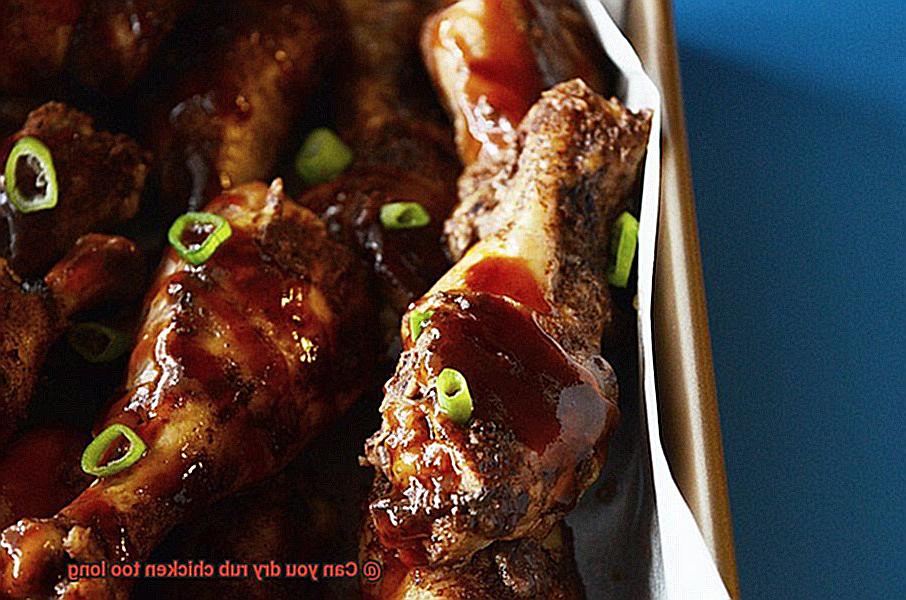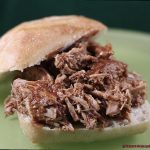Imagine a sunny summer day, the grill sizzling with anticipation, and your taste buds craving the tantalizing flavors of expertly seasoned chicken. With precision and care, you massage a medley of aromatic herbs and spices into every nook and cranny of your poultry. But then, life throws a curveball – an unexpected phone call steals you away from your grilling paradise.
Suddenly, you’re faced with a burning question: can you dry rub chicken for too long? As a culinary connoisseur, I’m here to shed light on this age-old quandary.
Dry rubs are like secret weapons that transform ordinary chicken into extraordinary culinary masterpieces. However, there’s a fine line between perfection and overdoing it when it comes to timing. Allowing your chicken to marinate in a dry rub for too long can have both positive and negative consequences on the final outcome.
In this blog post, we’ll unravel the mysteries behind extended dry rub sessions. We’ll explore the science behind marination and offer practical tips to achieve flawless seasoning. Whether you’ve questioned the concept of “over-marinating” or suffered disappointing results from prolonged dry rub endeavors, get ready for some mouthwatering revelations.
So don your chef’s hat, trust those culinary instincts, and let’s embark on an odyssey through the realm of dry rubs and the art of perfectly seasoned chicken.
Contents
What is a Dry Rub?
Grilling is an art form that allows you to create mouthwatering meals bursting with flavor. One secret to achieving this culinary perfection is the use of a dry rub. Whether you’re a grilling novice or a seasoned pro, understanding what a dry rub is and how to use it can take your grilling game to new heights. In this guide, we’ll delve into the world of dry rubs, from their tantalizing ingredients to application techniques and marination tips.
What is a Dry Rub?
Prepare to be amazed by the power of a dry rub. This magical blend of herbs, spices, and seasonings is mixed together and applied directly to the surface of meat before grilling. Unlike marinades or sauces that rely on liquid ingredients, a dry rub forms a flavorful crust on the outside of the meat while allowing its natural juices to tenderize and infuse it with irresistible flavors.
Selecting the Right Ingredients:
Get ready to play with flavors. The beauty of a dry rub lies in its versatility, allowing you to customize the taste according to your preferences. While there’s no single recipe for a perfect dry rub, some common ingredients include salt, pepper, paprika, garlic powder, onion powder, chili powder, cayenne pepper, brown sugar, and dried herbs like thyme or rosemary. Experiment with different combinations and discover your very own signature blend.
Applying the Dry Rub:
Before applying the dry rub, make sure your meat is properly prepared. Pat it dry with paper towels to remove excess moisture and create the perfect canvas for the rub. Sprinkle the dry rub evenly over all sides of the meat, then gently press it in using your hands or a brush. Let the seasoned meat sit for at least 30 minutes before grilling, allowing the flavors to penetrate and work their magic.
Marination Tips:
Timing is everything. The duration for which you can leave a dry rub on meat depends on several factors. A safe bet is to let it marinate for up to 24 hours, striking a perfect balance between flavor infusion and meat tenderness. However, be mindful of the salt content in your rub, as it can draw out moisture if left for too long, resulting in a dry and overly salty dish. For a bolder flavor experience, consider marinating overnight or up to 48 hours while keeping an eye on moisture retention.
Storage and Food Safety:
Safety first. During the marination process, proper storage is crucial. Refrigerate the meat at temperatures below 40°F (4°C) to prevent bacterial growth and ensure food safety. Remember to follow all food handling and storage guidelines to reduce the risk of foodborne illnesses and enjoy your grilling adventure worry-free.
Can You Dry Rub Chicken for Too Long?
So, you’ve got your grill fired up and the chicken ready to go. But before you throw that bird on the grill, you want to make sure it’s packed with flavor. That’s where dry rubbing comes in. Dry rubbing involves applying a mixture of spices, herbs, and seasonings directly onto the surface of the chicken, allowing those flavors to penetrate deep into the meat.
But can you dry rub chicken for too long? The answer is yes. Leaving a dry rub on chicken for an extended period can have some negative consequences. Let’s explore them:
- Drying out the chicken: One potential consequence of leaving a dry rub on chicken for too long is that it can draw out moisture from the meat, resulting in a drier end product. This is especially true for lean cuts like boneless, skinless breasts. Nobody wants dry chicken, right?
- Overpowering flavors: Another issue is that certain spices or herbs in the rub can become overpowering if left on for too long. We all love a good kick of garlic or chili powder, but too much of a good thing can ruin the overall dish. So, it’s essential to strike the right balance between marinating time and flavor.
To find that balance, here are some guidelines:
- Thinner cuts like wings or drumsticks benefit from shorter marination times of 30 minutes to 2 hours.
- Thicker cuts like whole chickens or bone-in breasts can handle marinating periods of 4 to 24 hours.
- As a general rule, letting the rub sit on the chicken for at least 30 minutes and up to 24 hours is recommended.
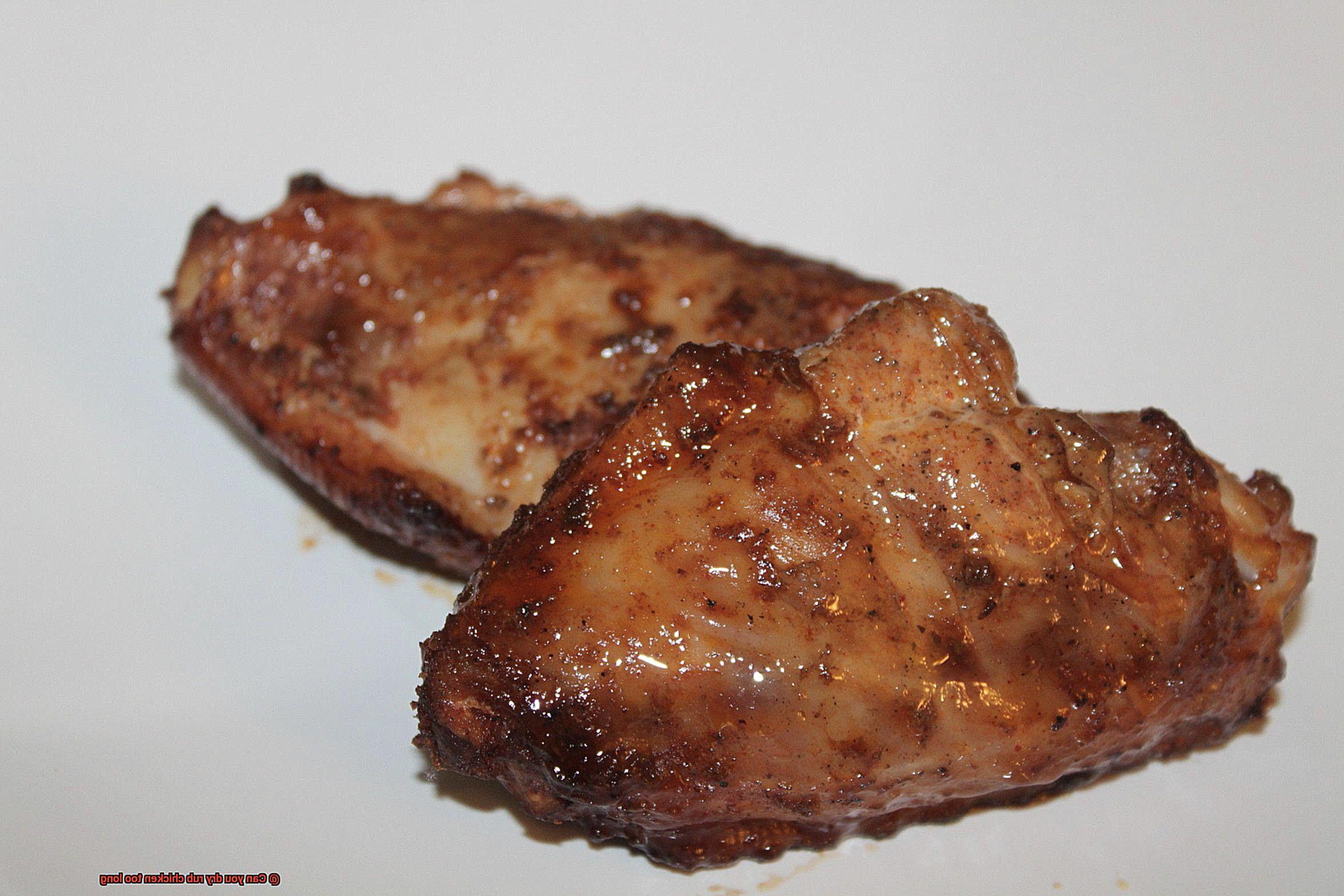
However, it’s important to consider the ingredients in your rub when determining how long to let it sit on the chicken. If your rub contains a high amount of salt or potent spices, it may be best to limit the marinating time to avoid overpowering the flavors.
Now here’s the thing: even if you do leave your dry rub on for too long, all hope is not lost. To prevent the chicken from becoming dry, pay close attention to the cooking time and temperature. Cooking the chicken until it reaches the recommended internal temperature will ensure it remains juicy and tender, even if it has been marinated for an extended period.
Factors to Consider When Dry Rubbing Chicken
Mastering the art of dry rubbing chicken is the key. Dry rubbing infuses your chicken with delicious flavors before it hits the grill, but there are important factors to consider for perfectly seasoned and moist results.
Type of Rub:
Choose a rub that suits your taste preferences. With countless options available, each with its own unique blend of herbs, spices, and seasonings, pick one that complements your personal preference. Whether you crave a mild and subtle flavor or a bold and intense kick, there’s a rub for you. Just be mindful of how long you leave it on the chicken, as some rubs can be quite strong or salty.
Thickness of Chicken:

Thicker cuts like bone-in chicken breasts or whole chickens require more time for flavors to penetrate the meat. For optimal results, leave the rub on thicker cuts for at least 2-4 hours or overnight in the refrigerator. Conversely, thinner cuts like wings or boneless thighs may only need 30 minutes to an hour for flavors to develop.
Personal Preference:
Experiment with different durations to find your sweet spot. Some people enjoy a stronger flavor profile and prefer a longer dry rub time, while others opt for a milder taste with a shorter rub time. It’s all about finding your perfect balance of flavor intensity.
Moisture Content:
Ensure optimal flavor absorption by patting the chicken dry with paper towels before applying the rub. Excess moisture on the surface can hinder flavors from adhering well, so removing it helps the rub adhere better.
Cooking Method:
Adjust rub time based on your cooking method. Longer rub times benefit grilling as flavors have more time to infuse during cooking. However, if you plan to deep-fry or bake at high temperatures, opt for a shorter rub time to prevent burning and bitterness.
The Risk of Leaving a Dry Rub on Chicken for Too Long
Risk 1: Dry and Tough Texture:
Leaving a dry rub on chicken for an extended period can lead to disaster in the form of a dry and tough texture. As time passes, the rub draws out the natural moisture from the chicken, leaving it parched and unappetizing. No one wants to sink their teeth into a piece of chicken that feels more like chewing on cardboard than a succulent delight. So, keep an eye on the clock and don’t let your chicken suffer.
Risk 2: Overpowering Flavors:
Dry rubs are a symphony of flavor, designed to enhance the natural taste of your chicken. However, when left on for too long, those flavors can go from harmonious to overpowering. The spices, herbs, salt, or sugar in the rub intensify with time, stealing the show and drowning out the delicate nuances of the chicken’s flavor. Achieving the perfect balance is key to grilling perfection.
Risk 3: Bitter or Unpleasant Tastes:
Some ingredients in dry rubs, such as paprika or chili powder, can take an unfortunate turn when exposed to high heat for too long. Imagine sinking your teeth into eagerly awaited grilled chicken only to be greeted by an unexpected bitterness. It’s a disappointing surprise that can ruin your meal. Avoid this culinary tragedy by respecting the recommended time limits.
How to Avoid These Risks:
To ensure your poultry remains juicy and bursting with flavor, here are some tips to follow:
- Timing is everything: Apply your dry rub no more than 24 hours before cooking. This allows enough time for the flavors to marry without compromising texture or taste. It’s like allowing your chicken and the rub to dance together in perfect harmony.
- Adjust for milder flavors: If you prefer a more subtle taste or are concerned about drying out the chicken, reduce the application time to a few hours before cooking. This way, the flavors will have less time to intensify, resulting in a more delicate flavor profile.
- Consider wet marinades: Remember, dry rubs and wet marinades have different implications. Wet marinades can tenderize the meat and bring their own set of risks and rewards. Choose your flavoring techniques wisely, depending on your desired outcome.
How Long Should You Leave a Dry Rub on Chicken?
When it comes to grilling chicken, one of the keys to achieving mouthwatering flavor and a perfectly tender texture is the dry rub. But how long should you leave that rub on before tossing your chicken on the grill? Let’s dive into this juicy topic and uncover the secrets to chicken perfection.
The length of time you should leave a dry rub on chicken can vary depending on a few factors. Firstly, it’s essential to consider the specific ingredients in your dry rub and the desired flavor intensity. Some experts recommend marinating chicken overnight for maximum flavor infusion, while others suggest a shorter marinating time of 30 minutes to 2 hours for a milder taste.
To strike a balance between marinating time and the desired flavor profile, here are some guidelines:
- Mild Flavor: For a milder flavor, marinate the chicken with the dry rub for 30 minutes to 2 hours. This will allow the flavors to infuse without overpowering the natural taste of the meat.
- Medium Flavor: If you prefer a medium flavor, aim for a marinating time of 4-8 hours. This extended time will help intensify the taste without becoming overwhelming.
- Strong Flavor: For those who crave a stronger flavor, consider leaving the dry rub on chicken overnight. This will allow ample time for the flavors to penetrate deep into the meat and create an explosion of taste.
Keep in mind that certain factors can affect marinating times as well. Thicker cuts of chicken, such as breasts or thighs, may require longer marinating times to ensure the flavors penetrate deeply. Additionally, if your dry rub contains acidic ingredients like lemon juice or vinegar, it’s best to avoid excessively long marinating times as they can break down proteins in the chicken and result in a mushy texture.
Now that you have an idea of how long to leave your dry rub on chicken, let’s talk about grilling tips. Preheat your grill to medium-high heat, lightly oil the grates to prevent sticking, and place the chicken on the grill. Cook for approximately 6-8 minutes per side or until the internal temperature reaches 165°F (75°C).
Remember to let your chicken rest for a few minutes before diving in. This allows the juices to redistribute and ensures a moist and flavorful bite.
Tips for Applying and Storing a Dry Rub on Chicken
Look no further than a dry rub for your chicken. A dry rub is a magical blend of herbs, spices, and seasonings that adds an explosion of flavor to your grilled chicken. In this guide, we’ll walk you through the steps for applying and storing a dry rub on chicken to ensure every bite is bursting with deliciousness.
Apply the Rub Generously:
To achieve maximum flavor, don’t be shy when it comes to applying the dry rub. Use your hands or a brush to generously coat all sides of the chicken. Make sure every nook and cranny gets covered so that each bite is packed with flavor.
Pat the Chicken Dry:
Before applying the rub, pat the chicken dry with paper towels. This removes excess moisture, allowing the dry rub to adhere better to the chicken. Moisture can create a barrier between the rub and the meat, preventing it from infusing properly.
Let It Sit, But Not Too Long:
Give your chicken time to soak up those incredible flavors by letting it sit with the dry rub on for at least 30 minutes before cooking. This allows the spices to penetrate the meat, resulting in a taste sensation. However, avoid marinating for too long as it can overpower the natural taste of the chicken.
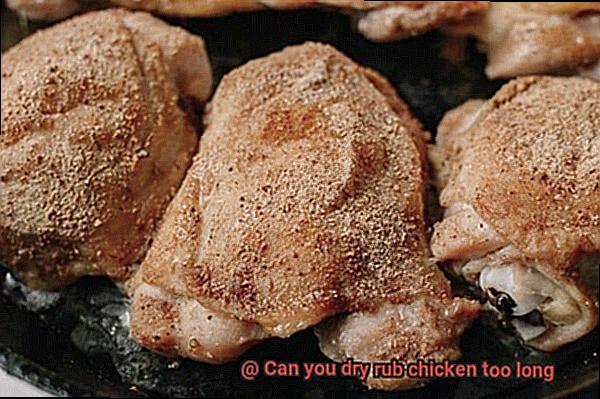
Store It Right:
Proper storage is key if you’re not grilling right away. Place the dry-rubbed chicken in an airtight container or wrap it tightly in plastic before refrigerating. This prevents cross-contamination and keeps it fresh until you’re ready to cook.
Don’t Wait Too Long:
While marinated chicken can be stored in the fridge for up to 24 hours, it’s best to cook it as soon as possible for optimal flavor and texture. Leaving it for too long can result in a loss of moisture and taste, so plan your grilling session accordingly.
Leftover Love:
If you have leftover cooked chicken with a dry rub, store it in an airtight container in the refrigerator for up to 3-4 days. When reheating, use the oven or stovetop to maintain its deliciousness.
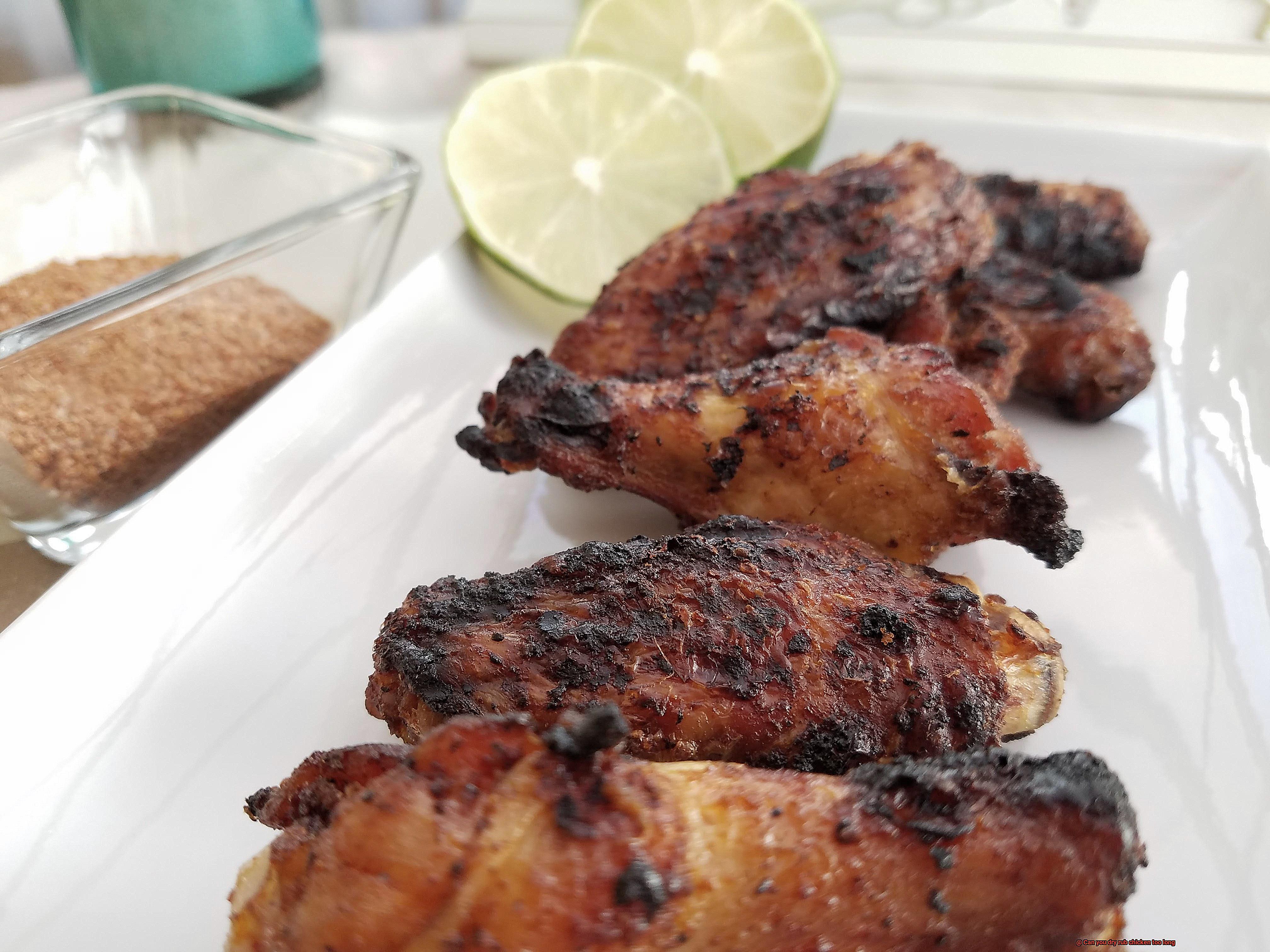
Benefits of Leaving a Dry Rub on Chicken Overnight or Up to 48 Hours
Look no further than the magic of marinating with a dry rub. By letting your chicken soak in a tantalizing blend of spices, herbs, and seasonings for an extended period, you’ll unlock a world of flavor that will leave your guests begging for seconds. In this article, we’ll explore the advantages of marinating chicken with a dry rub for up to 48 hours, so get ready to ignite your taste buds and become the grilling hero of your next cookout.
Enhanced Flavor:
Experience an explosion of flavor like never before. By leaving a dry rub on chicken overnight or up to 48 hours, you allow the ingredients to seep into the meat, infusing every bite with a deep, rich taste. Picture succulent meat bursting with the perfect combination of smoky, tangy, and savory notes – that’s what a well-marinated chicken can offer.
Tenderizing Effect:
Say goodbye to dry and tough grilled chicken. Marinating with a dry rub can be your secret weapon to achieve juicy and tender meat. The salt and acidic components found in many dry rub recipes act as natural tenderizers, breaking down proteins and allowing moisture to penetrate the meat. Embrace the melt-in-your-mouth tenderness that comes from leaving the rub on for an extended period.
Improved Moisture Retention:
No more bland and dry chicken. Marinating with a dry rub for longer can help solve this problem. Initially, the salt in the rub draws out moisture from the chicken, but as time goes on, it gets reabsorbed into the meat. This process leads to chicken that is both juicy and flavorful, ensuring that every bite is a delight.
Deeper Seasoning Penetration:
Don’t settle for surface-level seasoning. When you marinate your chicken with a dry rub for an extended period, the flavors penetrate deep into the meat, creating a perfectly seasoned masterpiece. Enjoy a consistent taste throughout the chicken, making each bite a burst of flavor. No more worrying about bland spots or uneven seasoning.
Time-Saving:
Need more time to prepare for your gathering? Marinating chicken with a dry rub for an extended period can be a game-changer. By preparing your chicken ahead of time, you can free up valuable minutes during meal preparation and focus on other aspects of your cookout. Plus, with the flavors already infused into the meat, you’ll spend less time worrying about additional seasoning during cooking.
Food Safety Considerations When Marinating Chicken
Attention, grill masters. Elevate your grilling game with the irresistible flavors and tenderness of marinated chicken. However, amidst the excitement, it is crucial to prioritize food safety when marinating chicken. Let’s delve into essential considerations that will not only make your grilling experience delicious but also safe for everyone at your table.
The Power of Cool:
Remember this mantra when marinating chicken: “Refrigerate, refrigerate, refrigerate.” Always marinate chicken in the refrigerator and avoid leaving it at room temperature. The chilly environment of the fridge slows down bacterial growth, safeguarding your chicken against potential foodborne illnesses.
Timing is Everything:
Patience may be a virtue, but when it comes to marinating chicken, there is such a thing as too much time. Refrigerate your marinated chicken for no more than 24 hours. Beyond this timeframe, enzymes can break down proteins, resulting in mushy meat. Excessive marination can also lead to an over-seasoned or overly salty taste – an undesirable outcome for any grilling enthusiast.
Container Chemistry:
Here’s a pro tip: choose your marinating container wisely. Opt for non-reactive materials like glass, ceramic, or stainless steel. Why? Reactive materials such as aluminum or copper can interact with acidic marinades and contaminate your food – a definite no-no.
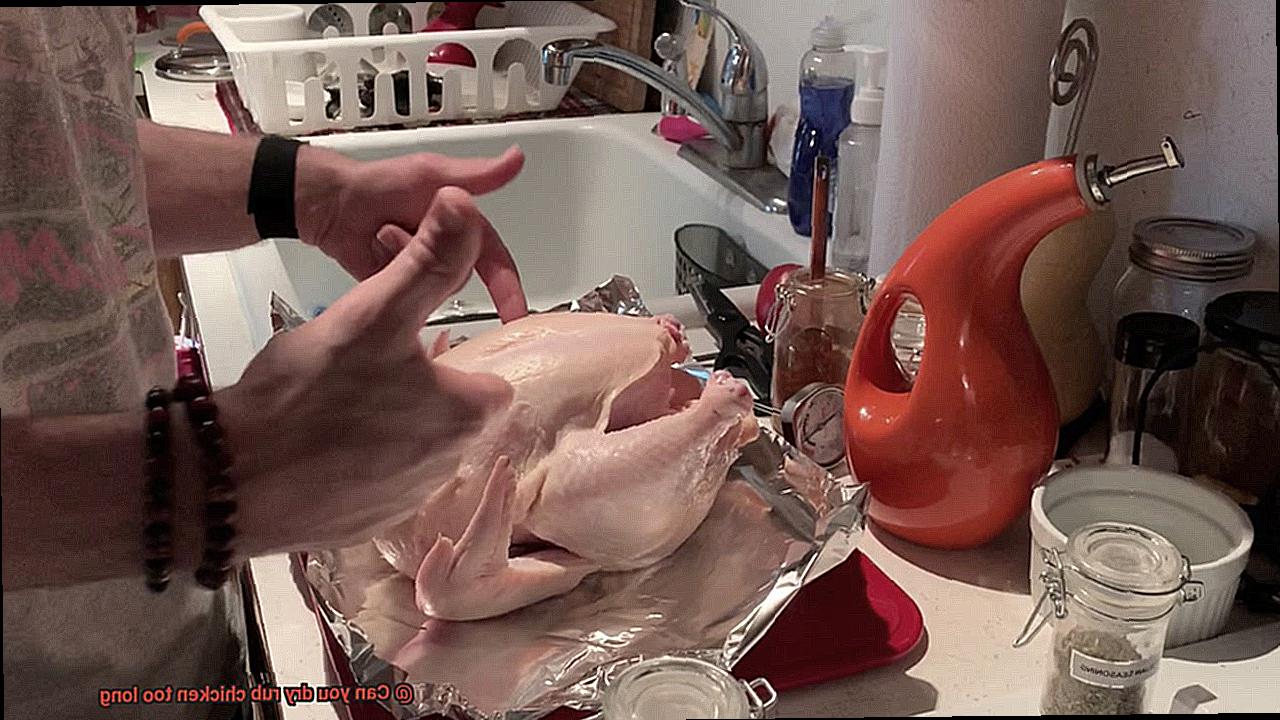
Clean Hands, Happy Tummies:
Maintaining good hygiene is paramount when handling raw chicken. Thoroughly wash your hands before and after touching raw chicken to prevent cross-contamination. It is also crucial to clean any utensils or surfaces that come into contact with the chicken or marinade. Remember, a clean grill master is a happy grill master.
Reserve and Serve:
If you plan to use some of the marinade as a sauce or glaze, set aside a portion before adding it to the raw chicken. Using marinade that has come into contact with raw chicken can introduce bacteria and pose a food safety risk. Better to be safe than sorry, right?
Cook Like a Pro:
When it’s time to fire up that grill, ensure your marinated chicken reaches an internal temperature of 165°F (74°C). This magic number guarantees the eradication of harmful bacteria, leaving you with perfectly cooked and safe-to-eat chicken.
RxBoYsGwm2g” >
Conclusion
When it comes to dry rubbing chicken, timing is everything. But can you dry rub chicken for too long? The answer is yes. Leaving your chicken marinating in a dry rub for an extended period can actually have some negative effects on the meat.
Over-marinating can result in a dry and tough texture, as the salt in the rub draws out moisture from the chicken. Nobody wants to sink their teeth into a piece of chicken that feels like chewing on a rubber band.
Additionally, if you let your chicken sit in the rub for too long, the flavors may become overpowering and mask the natural taste of the meat. You want your dry rub to enhance, not overpower, the flavor of the chicken.
So how long is too long? It depends on various factors such as the thickness of the chicken and the strength of your rub. As a general rule of thumb, it’s best to let your chicken marinate with a dry rub for no more than 24 hours.
To ensure juicy and flavorful results, give your chicken enough time to absorb those delicious spices but don’t leave it sitting for days on end. Remember, patience is key when it comes to marinating – find that sweet spot and your taste buds will thank you.
In conclusion, while marinating with a dry rub can elevate the flavor of your chicken, leaving it for too long can lead to undesirable outcomes. So be mindful of timing and strike that perfect balance between enhancing flavors and maintaining juicy tenderness.

